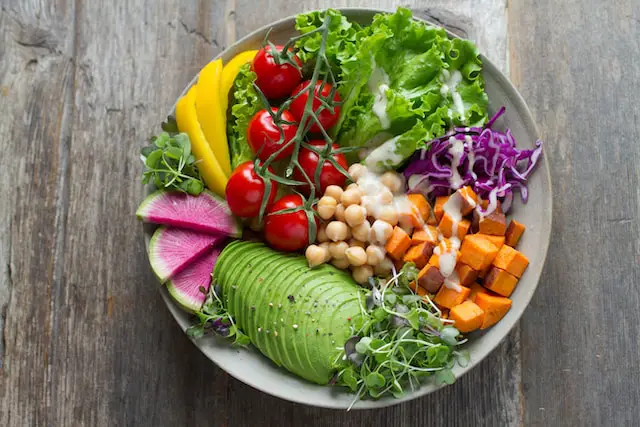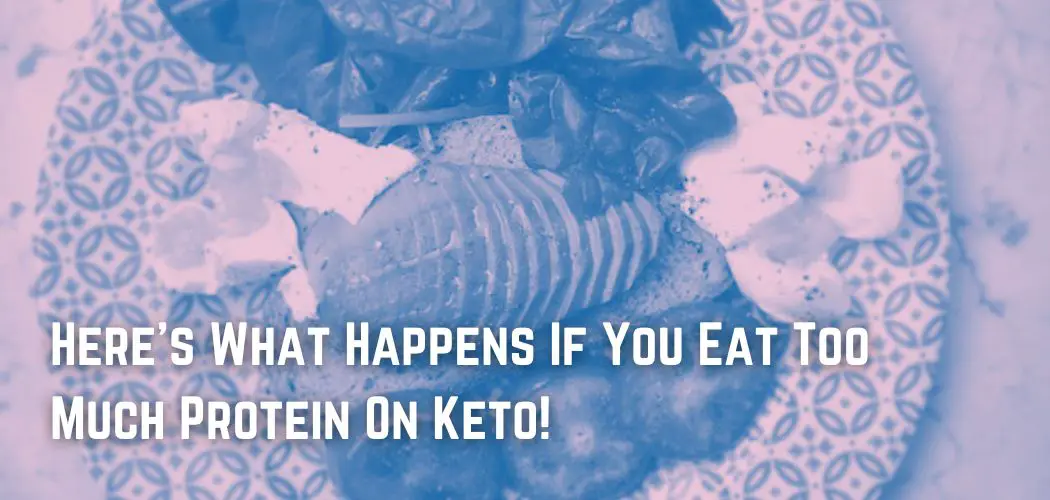The ketogenic diet, or keto diet, has gained popularity in recent years as a way to lose weight and improve overall health.
This diet involves consuming high amounts of fat, moderate amounts of protein, and very low amounts of carbohydrates.
The goal of the diet is to put the body into a state of ketosis, where it burns fat for fuel instead of carbohydrates.
While protein is an important macronutrient in any diet, consuming too much protein on a keto diet can have negative effects on the body. Here are some of the potential consequences of eating too much protein on a keto diet:
Contents
It Can Kick You Out Of Ketosis
Consuming too much protein can increase your insulin levels, which can kick you out of ketosis. This is because insulin helps to shuttle glucose into cells for energy, and when insulin levels are high, the body stops burning fat for fuel and starts burning glucose instead. This can be counterproductive if your goal is to stay in ketosis.
It Can Strain Your Kidneys
Excess protein can put a strain on your kidneys, as they have to work harder to filter out the waste products of protein metabolism. This can be particularly problematic if you already have kidney problems or a history of kidney disease.
It Can Lead To Dehydration
Protein requires a lot of water to be metabolized, so consuming too much protein can lead to dehydration. This is because the body will draw water from other tissues to help metabolize the protein, which can leave you feeling thirsty and dehydrated.
It Can Cause Digestive Problems
Consuming too much protein can cause digestive problems like constipation, bloating, and diarrhea. This is because protein requires a lot of digestive enzymes to break down, and if your body is not able to produce enough enzymes, it can lead to digestive discomfort.
It Can Lead To Nutrient Deficiencies
If you are consuming too much protein on a keto diet, you may be neglecting other important nutrients like fiber, vitamins, and minerals.

This can lead to nutrient deficiencies, which can have negative effects on your health over time.
Might Increase Blood Sugar Levels
Consuming too much protein on a keto diet can potentially increase blood sugar levels. This is because when you consume excess protein, your body can convert some of it into glucose through a process called gluconeogenesis.
Gluconeogenesis is the process by which your body produces glucose from non-carbohydrate sources, including protein.
When your body produces glucose through gluconeogenesis, it can potentially raise your blood sugar levels. This can be problematic if you are trying to maintain a state of ketosis, as elevated blood sugar levels can trigger an insulin response and kick you out of ketosis.
It’s worth noting that the amount of protein that will cause a significant increase in blood sugar levels will vary from person to person.
Some people may be more sensitive to protein-induced increases in blood sugar levels than others. Additionally, other factors like overall diet, exercise, stress levels, and medication use can also influence blood sugar levels.

To prevent a significant increase in blood sugar levels on a keto diet, it’s important to consume moderate amounts of protein and keep a close eye on your blood sugar levels.
If you have diabetes or are at risk for developing diabetes, it’s especially important to monitor your blood sugar levels closely and work with your healthcare provider to develop an appropriate dietary plan.
Ideal Consumption Of Protein On Keto
The ideal consumption of protein on a ketogenic diet will vary depending on a number of factors, including your age, gender, weight, activity level, and overall health goals.
However, as a general guideline, most people on a keto diet aim to consume between 0.6 and 1 gram of protein per pound of body weight per day.
For example, if you weigh 150 pounds, you would aim to consume between 90 and 150 grams of protein per day.

It’s important to note that excess protein can be converted into glucose through a process called gluconeogenesis.
This can cause a spike in insulin levels and prevent your body from burning fat for fuel. In addition to the amount of protein you consume, it’s also important to consider the quality of the protein you’re eating.
Aim to choose protein sources that are nutrient-dense and minimally processed, such as grass-fed beef, wild-caught fish, free-range poultry, eggs, and tofu.
Ultimately, the ideal consumption of protein on a keto diet will depend on your individual needs and goals. It’s always a good idea to work with a healthcare professional or registered dietitian to develop a personalized dietary plan that takes into account your unique needs and goals.
Conclusion
Protein is an important macronutrient that plays a crucial role in building and repairing tissues in the body.
However, when it comes to a ketogenic diet, it’s important to strike a balance between fat, protein, and carbohydrates to ensure optimal health and weight loss.
Consuming too much protein on a keto diet can have negative effects on the body, including potentially kicking you out of ketosis, straining your kidneys, causing dehydration, digestive problems, and nutrient deficiencies.

